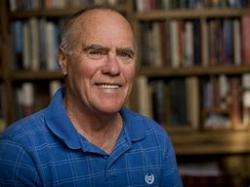The pandemic has been a long and grueling experience, as has been America’s 400-year history of racial injustices. There’s a lot we can learn from sports–marathon running, especially–and then apply to America’s current plight.
In my view, the marathon is a 10 km race with a twenty-mile warm-up. I raced each marathon by pacing myself. When my energy began sweeping away, I concentrated even more on my form. I maintained a relaxed arm rhythm with my head erect. I aligned my shoulders above my hips, which I kept inline above my knees, and which I kept inline above my feet.
I also maintained a good foot strike by gently landing on the outside of each heel, rolling to the big toe before pushing off. I worked at maintaining as much of a relaxed, upright posture as I could, and I wouldn’t allow fatigue to dominate.
Concentrating on my form–and not food or some other such subject–worked best for me. I recommend it still for any road racer or athlete. Too many times, I would pass runners whose form had melted into the roadway. They had fallen apart. And in any race–even a 100-meter dash–form is essential. What’s more, a racer’s form is a result of his or her training.
What does all of this have to do with the challenges we face today? The form to which I refer is our individual and collective knowledge of history, literature, and religion. If we perfect our form, we can then apply it in times like today. Sadly, America broadly lacks the form of which I write.
An excellent beginning to developing form is knowing the name, Dr. Martin Luther King, Jr., and learning about him and his work, including reading/studying his essay Letter from the Birmingham Jail. Also, read the April 12, 1963 appeal to “local blacks of Birmingham,” which was signed by eight religious leaders and printed in many area newspapers. Read their condemnation of Dr. King as “an outside agitator,” and then read his essay in answer to their words.
If you learn more about the long struggle for racial justice, I think you will develop a deeper appreciation for impatience that has followed in the half-century since those words were penned.
There’s more regarding history that we should be relying on today. As the COVID-19 plague wears on, some of us are ignoring safety precautions with the belief that governmental restrictions are infringing “rights”.
My take, you see, is that any modern sufferer gains solace from and through knowledge. Out of solace comes patience, a virtue so necessary for engaging in productive behavior. We need that kind of behavior today–actions that are based on knowledge–not just on emotions–with patience that grows out of knowledge grounded in complexity.
And, as we are at it, we can all benefit from relying on a higher power. As a Christ-follower, I read and study my Bible, and The Sermon on the Mount is what I draw from most in times like this.
During the 1960s, I marched and protested against the Viet Nam War and for equality in America. Back then, I experienced the sting of gas agents and saw destruction rendered by angry mobs. Because I see that same anger today, I offer the words in Matthew 5-7. In speaking to a large crowd on a mountain, Jesus gave instructions for living, for self-respect and for respecting others; for decency, for living a productive life, and for living a life of quality.
During the 1950s and 1960s, Dr. Clarence Jordan demonstrated at Koinonia Farm in Southwest Georgia, and he taught us how important it was to follow the teachings of The Sermon on the Mount. If we do, then we shall have the form and training necessary as the fatigue of running ‘our marathon’ sets in. That training will not only enable us to maintain form, but also to finish the race and to finish it well.














